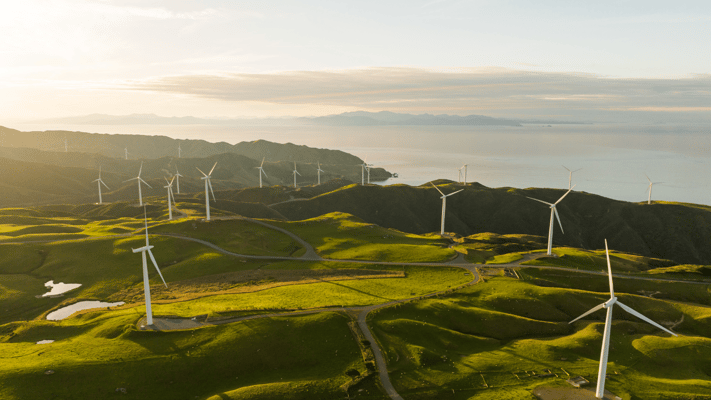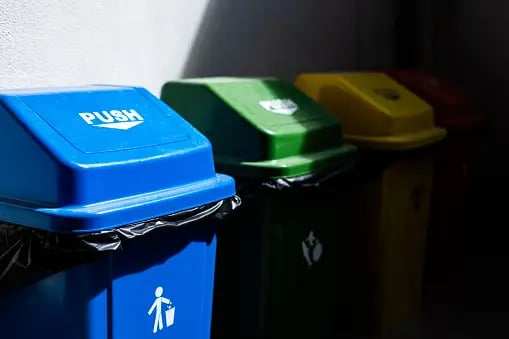Attendees to COP27 will today be discussing decarbonisation as part of the themed daily schedule. Decarbonisation Day aims to promote discussion on how heavily polluting industries such as oil and gas extraction, and construction, can reduce their emissions using innovative techniques.
The day will also highlight greenhouse gases aside from carbon dioxide, with hopes that more countries will sign up to cut 30% of their methane emissions by 2030.
Decarbonising high emitting sectors is critical to mitigate global warming. Oil & Gas, Steel and Cement are three of the most carbon-intensive industries, their direct emissions representing more than 1/4 of global CO2 emissions. The official COP27 website outlines the decarbonisation challenge and the topics it plans to tackle throughout today’s negotiations from accelerating the way towards decarbonising the steel industry, the oil & gas industry’s decarbonisation journey and the global methane pledge to advancing efforts in decarbonising cement and advancing low-carbon development pathways for Africa and the developing world.
This come alongside The Breakthrough Agenda, whereby governments representing half of global emissions and more than half of global GDP have provided a sweeping update on commitments to bring low-carbon technologies to price parity with their predecessors by 2030, as part of efforts to decarbonise hard-to-abate sectors.
The Breakthrough Agenda was first launched at COP26 and has now provided more information about how it aims to deliver its overarching aim of ensuring that low and zero-carbon technologies are affordable by the end of the decade.
Edie. Net reports that participants in the Road Transport Breakthrough have agreed that they will bring forward policies to end the sale of petrol and diesel cars and other light vehicles to a common timeframe. Dates of 2040, if they are a developing economy, or 2035, if they are a developed economy, are being discussed. It has been confirmed that “significant backing” will be announced by businesses and cities as COP27 continues.
Other agreed actions on ‘priority’ areas pertain to heavy industry. Nations participating in the Breakthrough Agenda have pledged to collectively develop at least 50 large-scale industrial plants or clusters operating at net-zero emissions, as well as at least 100 hydrogen valleys. Hydrogen valleys are areas where multiple hydrogen projects operate in a ‘cluster’, with production often co-located with end-use. Hydrogen producers will, in the coming days, sign an agreement to prioritise green hydrogen produced by electrolysis powered with renewable electricity.
Another agreement is on the creation of common definitions for ‘low-emission’ steel and hydrogen. These definitions will set the bar for manufacturers and for procurement. Similarly, nations will need to define what constitutes a ‘sustainable’ battery.
All in all, there are 25 new collaborative actions for the Breakthrough Agenda participants to deliver. They have pledged to achieve all of them before COP28 begins in Dubai next winter.
The UN’s high-level champion for climate change for Egypt, Dr Mahmoud Mohieldin, added: “COP27 is an implementation COP. I am pleased to see countries come together today to shift from pledges to tangible action, by collaborating through the Priority Actions under the Breakthrough Agenda. This represents a concrete international plan to decarbonise high-emitting sectors by 2030 and help developing countries seize the opportunity of low-carbon and climate resilient growth and development.”
With the increasing demand for carbon data, many teams are searching for a simple, intelligent solution for carbon footprinting that reduces manual effort and increases accuracy.
As a central hub for all your sustainability data, Rio is able to automate carbon reporting activities and help organisations improve efficiency on their path toward net zero.
Upload data from sources of your choice and Rio automatically calculates your organisation or portfolio’s carbon footprint using industry-standard guidance and conversion rates.
Rio allows you to compare performance across years or locations, set custom targets for reducing your footprint, and track performance against targets over time.
Want to learn more about how to reach Net Zero targets. Download our free guide here.








